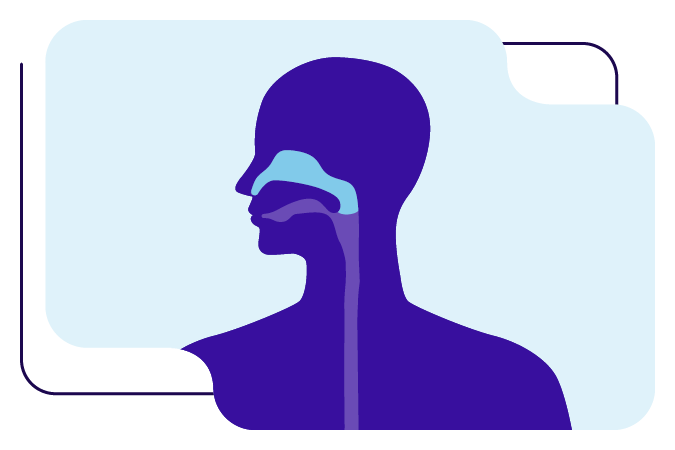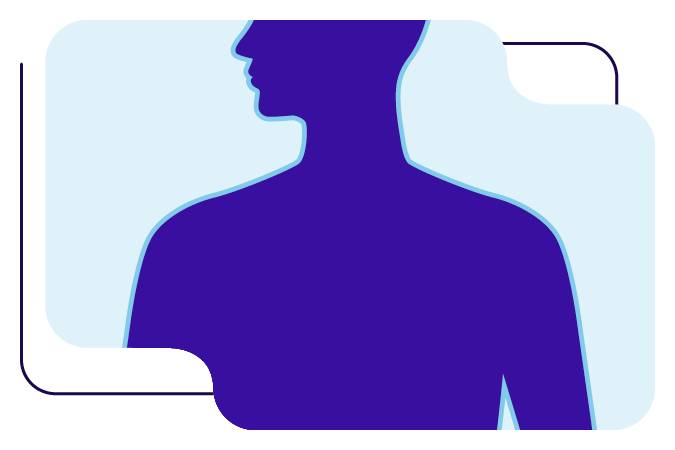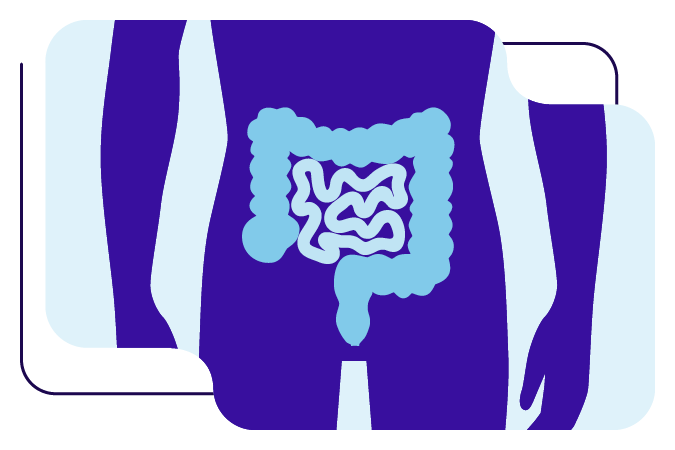Breast cancer causes
Find out what can increase your risk of breast cancer

On this page
What causes breast cancer?
There’s no single cause of breast cancer, but there are many things that can increase your risk, including some you can’t change. Risk factors include behaviour choices like drinking alcohol, as well as your genes, hormones and certain environmental factors.
Because breast cancer is influenced by hormones, certain behaviours may affect your risk differently depending on whether the cancer develops before or after menopause. That’s why the research looks at premenopausal and postmenopausal breast cancer separately.
Diet, lifestyle choices and breast cancer
Drinking alcohol
Research shows that drinking any amount of alcohol, even in small amounts, increases the risk of breast cancer, both before and after the menopause. Alcohol is also linked to several other types of cancer.
That’s why one of our Cancer Prevention Recommendations is to limit how much alcohol you drink. The less you drink, the lower your risk – and avoiding alcohol altogether is best for your health.
Living with overweight or obesity
The link between body weight and breast cancer is complex. Its influence on your cancer risk depends on when in life you gain weight and whether breast cancer develops before or after the menopause.
- At birth: being born a heavier weight is linked to a higher risk of breast cancer before the menopause.
- Before the menopause: living with overweight or obesity in early adulthood (ages 18-30) or in adulthood before the menopause is linked to a lower risk of breast cancer before the menopause.
- After the menopause: gaining weight as an adult and living with overweight or obesity increases the risk of breast cancer after the menopause, when breast cancer is most common.
Why is this relationship complex? Body weight affects your hormones, the number of periods you have and how breast tissue develops, and all of these things may influence your risk in different ways and at different times of your life.
While our scientific knowledge on this is growing, one thing is clear: keeping to a healthy weight throughout your life is one of the best ways you can reduce your risk of postmenopausal breast cancer and at least 12 other cancers.
That’s why one of our Cancer Prevention Recommendations is to be a healthy weight throughout life.
Get tips and advice to achieve a healthier weight – download our guide.
Frequently asked questions
Can stress cause breast cancer?
Many people believe that stress causes cancer, but the evidence on this is limited. Find out more on our stress and cancer page.
Can soy cause breast cancer?
People worry that soybeans and soy foods like tofu might increase their cancer risk, especially of breast cancer. But there’s no consistent evidence to show that eating soy foods increase breast cancer risk.
Soy foods can be enjoyed as part of a healthy, balanced diet as they are a good source of protein, fibre, unsaturated fat and various vitamins and minerals.
Read our blog to find out more about soy and breast cancer.
Family history, genetics and breast cancer
Having a family history of breast cancer
Having a first-degree relative like a mother, sister or daughter who has had breast cancer can increase your own risk. This is known as having a family history of breast cancer.
Inheriting gene faults
Some people inherit faults in specific genes (known as mutations) that can increase their risk of breast cancer. A gene fault is a change in the DNA that can affect how cells grow and repair themselves. The most well-known of these genes are called BRCA1 and BRCA2. BRCA stands for BReast CAncer.
Hormones and breast cancer
Having a longer lifetime exposure to hormones
Breast cancer is linked to oestrogen and progesterone. The longer you have these hormones in your body over your lifetime, the higher your risk may be. Reasons you may be exposed to them for longer can include:
- Starting your period before age 12
- Going through the menopause after age 55
- Not having children
- Having your first pregnancy after age 30
Taking hormone replacement therapy (HRT)
Taking HRT that contains oestrogen, with or without progesterone, can slightly increase your risk of breast cancer. The risk is higher when both hormones are used together, but it starts to decrease after you stop taking it.
Using hormonal contraception
Using hormonal contraception, such as the combined pill or the mini-pill, may slightly increase breast cancer risk. This risk is small and starts to decrease after you stop using it.
Other factors that can contribute to breast cancer
Being older
The risk of breast cancer increases with age. Before the menopause, the risk of breast cancer doubles about every 10 years. After the menopause, it still increases, but not as fast. Most cases of breast cancer are diagnosed after the menopause.
Being a taller adult
Being taller as an adult is linked to an increased risk of breast cancer. Height itself doesn’t cause cancer, but it reflects a range of factors like nutrition, hormones and genetics that influence growth earlier in life.
Being exposed to radiation
Being exposed to ionising radiation, such as radiation used in x-rays, can increase the risk of breast cancer. The risk is higher when the exposure happens at a younger age, particularly during puberty, even at low doses.
Resources for health professionals
Health professionals can play an important role in helping women reduce their risk of breast cancer. By offering evidence-based, practical advice on building healthy habits, you can support your patients to make positive, informed choices about their health.
We’ve created free resources to help you in your conversations:
More breast cancer information for you
-
References
- World Cancer Research Fund/ American Institute of Cancer Research. Continuous Update Project Expert Report 2018. Diet, nutrition, physical activity and breast cancer. Available at: https://www.wcrf.org/research-policy/library/breast-cancer-report/


